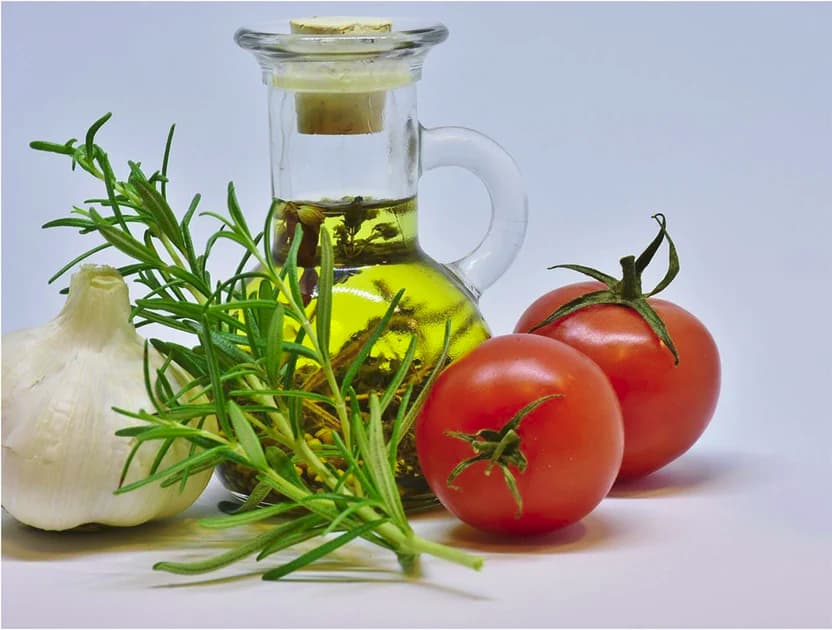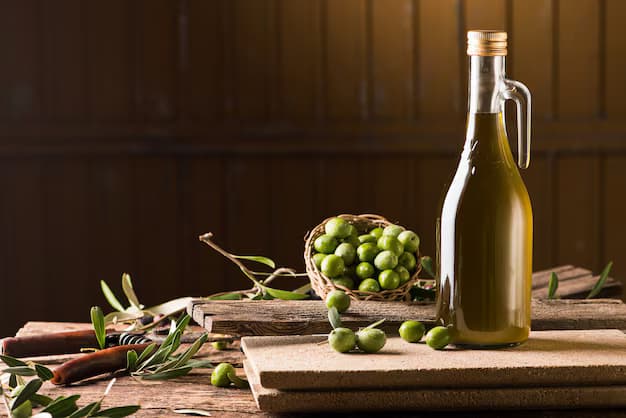Is Olive Oil Good for Cooking? Here's What You Need to Know

Strong 8k brings an ultra-HD IPTV experience to your living room and your pocket.
Olive oil has been a staple in kitchens around the world for centuries, renowned not only for its rich flavor but also for its numerous health benefits. As culinary trends shift towards healthier cooking practices, olive oil has regained its place in the spotlight. However, with various types of olive oil available and differing opinions on its suitability for cooking at high temperatures, many home cooks find themselves asking, "Is olive oil good for cooking?" This article delves into the various aspects of using olive oil in the kitchen, providing insights that will help you make informed choices.
The Health Benefits of Olive Oil
One of the most compelling reasons to incorporate olive oil into your cooking is its impressive health profile. Rich in monounsaturated fats, particularly oleic acid, olive oil is known to promote heart health. Studies have shown that diets high in monounsaturated fats can lower bad cholesterol levels while maintaining good cholesterol levels. Additionally, olive oil is packed with antioxidants, such as vitamin E and polyphenols, which help combat oxidative stress and inflammation in the body.
Furthermore, the Mediterranean diet, which emphasizes the consumption of olive oil, has been linked to various health benefits, including reduced risks of chronic diseases such as heart disease, diabetes, and even certain cancers. By using olive oil for cooking, you are not only enhancing the flavor of your dishes but also contributing positively to your overall health.
Types of Olive Oil and Their Culinary Uses
When considering olive oil for cooking, it is essential to understand the different types available and how they impact both flavor and cooking methods. Extra virgin olive oil (EVOO) is the highest quality and most flavorful option, produced from the first cold pressing of olives without the use of chemicals. Its robust flavor profile makes it ideal for drizzling over salads, dipping bread, or finishing off a dish.
In contrast, refined olive oil has a milder taste and a higher smoke point, making it suitable for frying and sautéing. While it lacks some of the health benefits and flavor intensity of EVOO, it can still be a viable option for cooking at higher temperatures. It is important to note that using extra virgin olive oil for high-heat cooking, such as frying, may not be the best choice due to its lower smoke point compared to refined olive oil.
The Smoke Point: What You Need to Know
The smoke point of an oil refers to the temperature at which it begins to smoke and break down, producing harmful compounds and undesirable flavors. For olive oil, the smoke point can vary depending on the type. Extra virgin olive oil typically has a smoke point ranging from 350°F to 410°F (175°C to 210°C), while refined olive oil can reach up to 465°F (240°C).
This difference is crucial when considering olive oil for cooking. If you are planning to sauté vegetables or sear meats, using refined olive oil may be a better choice due to its higher smoke point. However, if you are preparing a dish that requires lower cooking temperatures, such as a salad dressing or a drizzle over grilled vegetables, extra virgin olive oil is unparalleled in its flavor contribution.
Flavor Profile and Versatility in Cooking
One of the standout features of olive oil is its unique flavor profile, which can enhance a wide variety of dishes. The taste of olive oil can range from fruity and grassy to peppery and nutty, depending on the type of olives used and the region in which they are grown. This versatility makes olive oil an excellent choice for countless cooking applications.
When using olive oil for cooking, consider the dish you are preparing. For example, a robust extra virgin olive oil can complement roasted vegetables beautifully, while a milder refined olive oil may be better suited for baking or frying. The ability to choose the right type of olive oil based on the flavor it imparts allows home cooks to elevate their culinary creations.
Cooking Techniques That Benefit from Olive Oil
The use of olive oil in cooking extends beyond the basic sautéing and frying. It can significantly enhance various cooking techniques, providing both health benefits and flavor. When roasting vegetables, tossing them in olive oil before placing them in the oven not only helps to achieve a crispy texture but also infuses them with flavor.
Similarly, when grilling meats or fish, marinating them in olive oil with herbs and spices can intensify the taste and ensure a moist, tender result. Furthermore, incorporating olive oil into sauces and dressings adds depth and richness, making it a vital ingredient in both traditional and contemporary recipes.
Addressing Common Concerns About Olive Oil
Despite its many benefits, there are common concerns regarding the use of olive oil for cooking. Some people worry that heating olive oil may produce harmful compounds or diminish its health benefits. While it is true that overheating any oil can lead to the formation of harmful substances, olive oil, particularly extra virgin olive oil, retains many of its beneficial properties even when heated to moderate temperatures.
Studies have shown that cooking with olive oil can still preserve its antioxidant content, which is particularly important in a balanced diet. As with any ingredient, moderation is key, and being mindful of cooking temperatures can help maximize the health benefits of olive oil.
Conclusion
In conclusion, olive oil is not only good for cooking but also an essential ingredient that can enhance the flavor and nutritional quality of your meals. Its health benefits, versatility, and rich flavor profile make it a must-have in any kitchen. Whether you're drizzling it over a fresh salad, using it to sauté vegetables, or marinating meats, olive oil can elevate your cooking experience.
To explore the finest selection of olive oils and incorporate them into your culinary adventures, visit Frantoio Grove. Experience the rich flavors and health benefits that come with quality olive oil for cooking. Transform your meals today!
Note: IndiBlogHub features both user-submitted and editorial content. We do not verify third-party contributions. Read our Disclaimer and Privacy Policyfor details.



